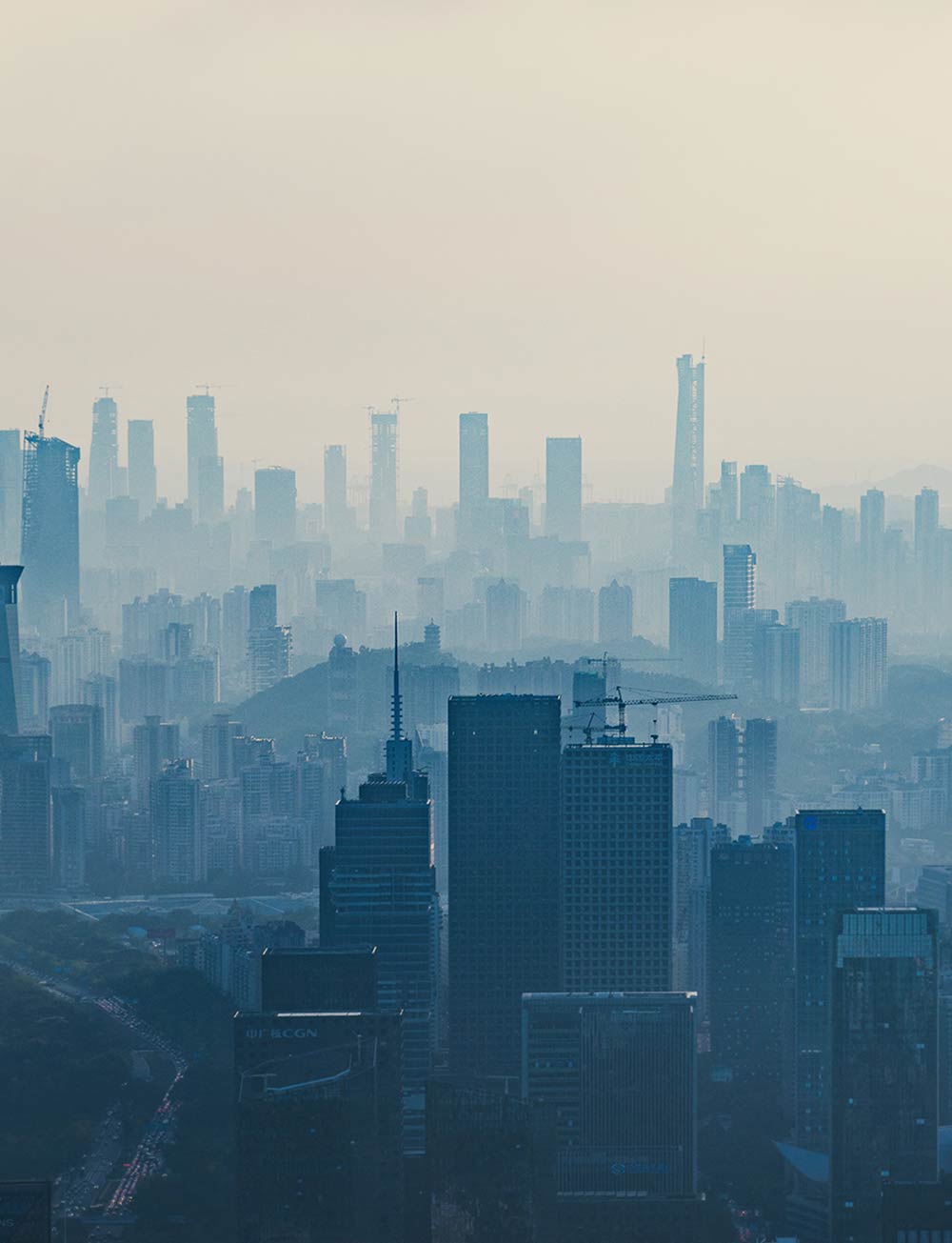Hazy finance

It's one thing to look at pictures of Beijing shrouded in smog and imagine working under such conditions. It’s another to spend your days in one of the capital’s buildings that feels like a hotbox run by chain-smokers.
Professor Wei Wang, PhD’06, knows that feeling. Wang teaches in the Master of Finance-Beijing program. His most challenging times are on windless winter days, when a dense mass of fine particulate matter from nearby coal plants seeps into buildings, causing eyes to water and chests to tighten.
Hanging out with his colleagues from Renmin University, Meng Miao and Zhengyu Zuo, conversation turned to the deleterious effects of air pollution, from high crime rates to low worker productivity. It’s well known that fine particulate matter reduces our physical and cognitive capacity. One study linked short-term variations in fine particulate matter in Manhattan to substantial movements in the S&P 500. Another study in China showed that investors make worse trades on hazy days.
Wang and his colleagues took a different angle: the initial public offering (IPO) approval process led by the China Securities Regulatory Commission (CSRC). The critical IPO review meetings involve a seven-member committee of the CSRC and company officials and occur in standard government offices in Beijing, where an air purifier is a luxury and therefore not allowed.
The researchers speculated that on meeting days with a high PM2.5 level (particulate matter of 2.5 microns in diameter), environmental conditions could affect committee members—and their judgment—in one of two ways. First, their cognitive capacity could be overly taxed. And if they’re not thinking clearly, lax regulatory oversight on polluted days would lead to more low-quality firms successfully listing their stocks. Alternatively, hazy days could put members in a foul mood and prompt them to reject IPO applications, leading to more high-quality firms getting rejected.
The researchers decided to test these theories. They built a sample of 1,488 IPO applications filed with the CSRC between 2014 and 2020. They identified which were approved or not and cross-referenced them to committee members who reviewed the applications. Next, they obtained the transcripts of the review sessions, paying particular attention to committee member questions. Finally, they gathered air quality data from the monitoring station closest to the CSRC offices.
Counting losses
When the researchers analyzed the data, the results pointed in a clear direction: on hazy days in Beijing, CSRC committee members showed uncharacteristically poor judgment. The IPO pass rate on polluted days in Beijing (days with high PM2.5 levels) was five percentage points higher than on clear days and 12 percentage points higher on very hazy days. As expected, IPOs from firms in green-related industries were more likely to be approved on polluted days. But plenty of firms were approved that were not ready for prime time on the stock market.
Real-world evidence proved as much. Compared to IPOs approved on clear days, IPOs approved on polluted days had lower profitability and return on equity and worse stock returns within one year of listing. Our back-of-the-envelope calculation,
says Wang, “suggests that the total investor loss as a result of lax oversight by the review committee amounts to close to 28 billion renminbi (US$4 billion) between 2014 and 2020.”
Next, Wang and his colleagues used natural language processing to analyze transcripts of the discussions between regulators and the IPO firm representatives. They found that on hazy days reviewers asked fewer, shorter and less complex questions. They were also less likely to ask followup questions. The evidence reflects the deterioration of reviewers both physically and mentally,
says Wang, “as followup questions rely more on improvisation than on preparation.
Given these findings, there appear to be simple workarounds if regulators care to implement them. In financial centres with recurring air pollution—Beijing being Exhibit A—government offices can be outfitted with air purifiers. Failing that, meetings scheduled on hazy, smoggy days can be postponed or moved to safer locations.
